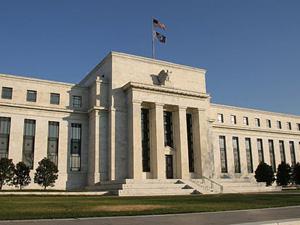U.S. Federal Reserve takes steps to bolster flagging economy
With the U.S. economy just lurching forward, the Federal Reserve on Thursday announced that it would begin an indefinite program of buying up bonds and other securities, in an effort to inject more capital into the economy.
“Growth in employment has been slow, and the unemployment rate remains elevated. Household spending has continued to advance, but growth in business fixed investment appears to have slowed. The housing sector has shown some further signs of improvement, albeit from a depressed level,” the Fed said in a statement.
The hope is that more money in the system will lead to more jobs and, eventually, lower unemployment. The program is called quantitative easing, and has been tried twice before with limited success.
But the current program is more broad-based than previous Fed attempts at quantitative easing. For starters, the Fed has pledged to buy $85 billion in new assets, including $40 billion in mortgage-backed securities every month at least until year’s end. But going beyond that, the Fed has pledged to continue its asset purchases until the economy is on a stronger road to recovery.
Additionally, the Federal Reserve board pledged to keep its benchmark interest rate at historically low levels, between 0 and .25 percent, until mid 2015 — an extension on its existing promise.
“The (Federal Open Market Committee) is concerned that, without further policy accommodation, economic growth might not be strong enough to generate sustained improvement in labor market conditions,” the Fed said. “Furthermore, strains in global financial markets continue to pose significant downside risks to the economic outlook.”
Federal Reserve Chairman Ben Bernake, in a press conference shortly after the Fed action was announced, warned that while the bankers anticipated this would aid the economy, monetary policy alone can’t get things moving.
“The idea is to quicken the recovery, to help the economy begin to grow quickly enough to generate new jobs and reduce the unemployment rate,” Bernake said.
The U.S. stock markets all moved upward in reaction to the news, with the three major benchmarks, the Dow Jones Industrial Average, the S&P 500 and the NASDAQ all up about 1.5 percent.
